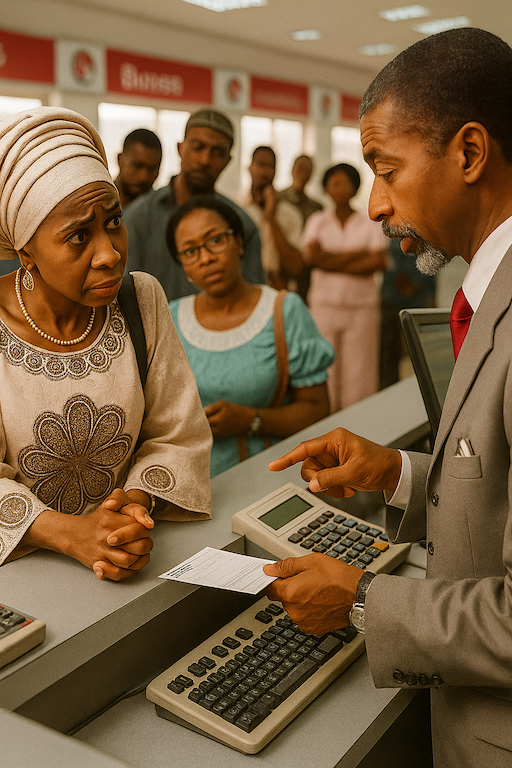In recent weeks, the release of the 2025 JAMB/UTME results has brought both celebration and reflection across Nigeria. At St. Clement’s Secondary School, located in Minna, the capital of Niger State, a wave of pride swept through the corridors as students posted some of the best results in the state. With candidates like Peter Collins and Ezekiel Marvellous scoring 318, and others close behind, the school’s achievements reflect the result of years of intentional leadership, academic focus, and strategic investment in digital education infrastructure.
But while this is a story worth celebrating, it’s also a lens through which we must examine a deeper, national challenge—the vast digital divide affecting students across both rural and urban Nigeria.
When the Exam Room Is a Computer: The CBT Shift
Over the past decade, examination bodies like JAMB and WAEC have transitioned to Computer-Based Testing (CBT) for major exams. While this shift aligns with global standards and offers many operational advantages, it has left a significant portion of Nigerian students behind—especially those without consistent access to computers.
CBT isn’t just about knowing the answers. It’s about navigating a digital interface, managing time in a new format, and staying calm under a kind of pressure that is unfamiliar to students who have never operated a mouse, keyboard, or test software.
The Real Struggle:
It's Not Always About Effort or Intelligence It’s a common but incomplete narrative that students who underperform in JAMB are simply "not serious." While some students do struggle with focus or study habits, many others are committed, intelligent, and hardworking—but are battling an uneven playing field.
They’re expected to write critical, high-stakes exams on unfamiliar technology, in unfamiliar formats. Even academically strong students falter—not for lack of preparation, but because their preparation did not include access to CBT systems.
This challenge isn’t limited to the far-flung rural communities. Even urban schools with limited funding face these hurdles. It costs money to build computer labs, train teachers, and simulate CBT environments. And in an economy where school fees are rising, some parents resist these changes—sometimes threatening to withdraw their children due to the added cost.
The St. Clement’s Example: What Vision Can Achieve
St. Clement’s wasn’t always one of the top-performing schools in Niger State. Its current success is the product of years of leadership commitment, strategic planning, and investment in technology and teaching quality. The decision to adopt CBT-style testing internally was a game-changer. It trained students not just academically but technically—bridging the gap between curriculum knowledge and exam delivery format.
This didn’t come without resistance. Infrastructure upgrades are expensive. Transitioning from paper-based tests to CBT wasn’t universally welcomed. But the long-term gain has clearly justified the short-term sacrifice.
This shows us that when schools prioritize access, and when leadership remains focused, even public or low-resource schools can level the playing field for their students.
So, What Can We Do?
Ensuring that every Nigerian student—regardless of location or background—has a fair shot at success is a shared responsibility.
For Government:
ICT Development Grants: Fund schools specifically for computer labs and solar-powered systems.
Policy Realism: Phase in CBT requirements where infrastructure is ready—not uniformly across all zones.
Train the Trainers: Equip teachers in rural and low-income urban areas with digital literacy skills.
For Schools:
- Partner with NGOs and alumni to build low-cost CBT labs.
- Introduce CBT simulation early—JSS level or even primary—where possible.
- Use shared resources: community centers or rotational labs in cluster schools.
For Parents and Communities:
- Understand the long-term value of digital education.
- Support fee adjustments that go toward computer labs or ICT training.
- Organize local fundraisers or co-op style initiatives to buy computers for schools.
For Individuals and Alumni:
- Donate old but working laptops and desktops to your alma mater.
- Sponsor a student’s CBT training or school’s digital upgrade project.
- Volunteer time or skills to train teachers or students in digital literacy.
Conclusion:
We Can’t Leave Success to Luck Nigeria’s students are not failing because they lack potential. Many are simply not equipped with the tools the modern educational landscape demands. A student with great academic ability but no computer access is at a severe disadvantage in today’s exam system.
It’s time to bridge this gap intentionally. Schools like St. Clement’s have shown what is possible—but they should not be the exception. Every student deserves a fair chance to compete—and to win. Let’s help them do just that.


